
Joshua Platillero
November 22, 2016
Activism Success: Students, Athletes, and Professors Join in Fight for Free Speech
You can feel alone when fighting back against unconstitutional policy on your campus. Activism events are a great way to find other likeminded students and call out these unconstitutional policies.Students at Oregon State University held a free speech ball event and found support from students on their campus. From football players to professors, people were getting involved and signing the free speech ball to support free speech on campus. By the end of the day, they had received over 150 signed petitions in support of free speech and had numerous students show interest in joining their club. Your Leadership Institute Field Representative is ready to help you and your club organize an activism event that highlights liberal bias and unconstitutional policy on your campus. Contact your Field Representative today.>

Joel Watson
November 15, 2016
Activism Success: Students at Arkansas Tech Fight for Free Speech
Students at Arkansas Tech face some of the most restrictive unconstitutional free speech codes in the country. That didn't stop students in the Young Americans for Liberty chapter from reaching out to the Leadership Institute and hosting a free speech ball outside of their designated “free speech zones.” When officers approached the students, informing them they were in violation of the school's speech code policy, the students recorded the incident. The Students were told that the school's policy trumped the First Amendment right to free speech guaranteed in the Constitution. In addition to the story being picked up by numerous media outlets, Young Americans for Liberty at Arkansas Tech teamed up with the Foundation for Individual Rights in Education to eliminate some of the most restrictive speech codes on a public campus in the nation. Your Leadership Institute Field Representative is ready to help you fight back against your school's liberal bias and unconstitutional policies. Contact your Field Representative today to learn how to bring an activism event to your campus.>

Kelsey Mix
November 2, 2016
Activism Success: On-Campus Coalition WeRoar Fights Back
As a conservative student on a college campus it can feel like you are all alone. Even when you join a conservative group, the task of fighting back against a school administrator's unconstitutional policy or liberal bias can be frightening. At Clemson University, conservative student groups have come together to form a coalition -- WeRoar -- to fight back. The coalition consists of Clemson's Turning Point USA and Young American for Liberty chapters, in addition to a conservative school newspaper, the Tiger Town Observer.Co-founder Clayton Warnke describes the goal of WeRoar to “effectively target the encroachment of our liberties, especially as they pertain to the first amendment, by streamlining our collective efforts into a simple message to attract broad support from the student body and community alike.”These conservative student groups mobilized their forces to tackle the unconstitutional restrictive free speech policies when school administrators attempted to shut down a man praying with students; WeRoar organized a protest. The Leadership Institute's Campus Reform also covered the story. As a result, WeRoar has been working with school administrators and student government to remove the unconstitutional speech codes on their campus. Due to the success of WeRoar at Clemson, members are excited to help conservative students at the University of South Carolina in forming a campus coalition of their own, WeSpur, to fight against liberal bias and unconstitutional policies on their campus.The WeRoar Coalition is also working to expand to other campuses.If your group is interested in starting a similar coalition and increasing your group's membership, contact your Leadership Institute Field Coordinator today.>
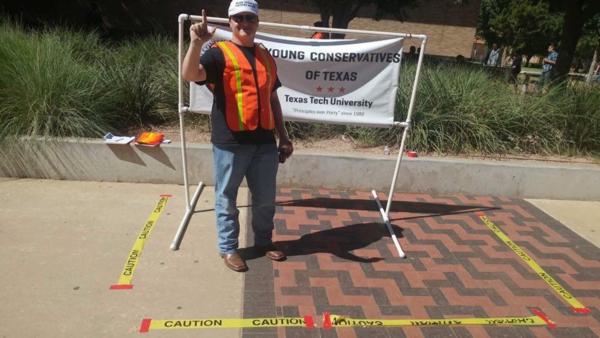
Haley Roddie
November 1, 2016
Activism Success: Young Conservatives Start the Semester With Outreach and Activism
A healthy conservative student group can be difficult to maintain. With students naturally leaving every year, recruitment is key to your conservative group's success. Every semester thousands of new students come to campus, and your student group should make an effort to reach out to those students. The Young Conservatives of Texas at Texas Tech started the semester with a bang. To start the year, they held a Remembering 9-11 event. They also hosted a free speech ball activism event and a “PC” police activism event, along with a Turning Point USA group. These events have resulted in hundreds of new signups of potential members. The Young Conservatives of Texas at Texas Tech capped it off by hosting Milo Yiannopoulos for his college tour. Over 400 students attended. To learn how to host these kinds of events on your campus contact me or your Regional Field Coordinator.>

Mariah Bastin
October 27, 2016
Halloween, Fear, and Public Speaking
Halloween is fast approaching and everyone's abuzz with excitement for the holiday -- costumes, haunted houses, and more! For me, haunted houses and other such Halloween thrills rank on the same level as fear of public speaking. In fact, did you know that 75% of the world's population fears speaking in front of an audience? So, how can we help remedy this large and far-reaching issue?In this post, I will teach you not only how to face your fear, but also how to successfully create and to execute a memorable, strong speech.Facing your fear of public speaking comes down to mindset -- plain and simple. In fact, it is scientific.Bruna Martinuzzi, president and founder of Clarion Enterprises Ltd., explains in an article how our brain doesn't process fear in different manners. “Understanding that our brain can't tell the difference between a real threat (a pack of wolves about to attack you) and an imagined threat (a group of your peers watching you present) is the first step to overcoming the fear. This awareness can help you manage the ‘false alarm' that happens in the absence of real danger.”Martinuzzi goes on to explain how you can train yourself to fend off the “false alarm” by doing something as minute as taking a deep breath and reminding yourself that this is just that: a “false alarm.” Once you have done this (and have slowed your heart rate down), you are ready to begin telling your story -- your speech.The first step in formulating your story is to know your audience. No preparation in the world will be worth anything if you don't know your audience. The style, length, expectations, and flow of the speech depend on your knowledge of the audience.Know your target demographic, understand the expectations of the speech (length of time given to speak, possible outcome or lesson learned, etc.), and what amount of creativity may be deemed acceptable (PowerPoint presentation or other forms of media).After you have analyzed your audience, you may now prepare your content.Your content should, at the very minimum, accomplish the expectations of your audience. At most, your content should exceed the audience's expectations. But, how do you go about accomplishing this?Tell a story!Now, you may be thinking “I won't be talking to a kindergarten class;” but, don't think about it in that manner. Instead, realize story-telling is how the world's history has remained alive. See the value in stories.Boundless.com correctly points out how “stories are universal in that they can bridge cultural, linguistic and age-related divides.”If that hasn't convinced you, think about the lectures and conversations you remember best. You remember the professor who began with a stark sentence and attracted everyone in; only to proceed with a well-flowing body and a “killer” ending. You remember a story!Write your main points and statistics out and memorize them, but let the rest flow. You don't want to have learned your speech. Word for word, only to freeze midway.Remember, stories (just like your speech) should feel natural. Now, go out and conquer your fear.If you wish to learn more about how to conquer your fear, attend Leadership Institute's upcoming Public Speaking Workshops. LI also offers a Public Speaking, Advanced Workshop. To register for these workshops, please click here. >
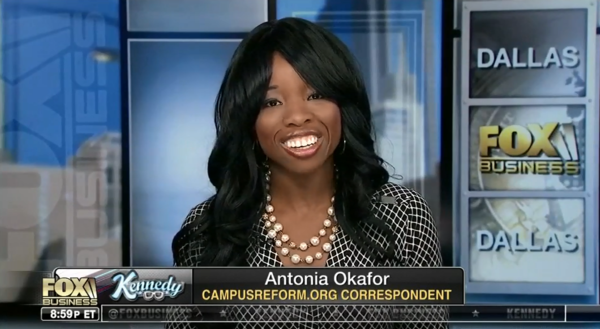
Emily Larsen
October 26, 2016
Award winning month at Campus Reform
The Leadership Institute's Campus Reform continues to be a roaring success as it celebrates an award-winning and record-breaking month. Three Campus Reform staff members received internal and external recognition of their excellent work.The numbers alone are superb. So far in 2016, Campus Reform reports of liberal bias and abuse on college campuses created media pressure which resulted in 28 conservative campus victories. Campus Reform staff and student contributors also discussed stories in television interviews 108 times, and the Drudge Report featured 24 stories.Campus Reform Editor-in-Chief Sterling Beard was named LI's employee of the quarter, due to the success of the project.“Sterling has shown outstanding leadership managing a Campus Reform staff who continue to break records and expand the site's media presence and influence,” said Morton Blackwell when he announced Sterling's award.Red Alert Politics also honored two additional Campus Reform staff members in its 2016 30 Under 30 list: Campus Reform's Program Coordinator, Laura Falcon, and the Leadership Institute's Director of Campus Outreach, Cabot Phillips.Laura Falcon primarily manages the Campus Correspondent Program, which recruits and cultivates conservative student journalists across the country to investigate and report liberal bias and abuse for Campus Reform. She's recruited 64 Campus Correspondents so far this year.“Every morning, I ask myself, ‘Who can I help and how?”' Laura told Red Alert Politics.Cabot Phillips, Director of Campus Outreach at the Leadership Institute, regularly appears on Fox News, Newsmax, and One America News Network to discuss Campus Reform stories.Cabot helped spearhead a successful social media campaign for LI's Campus Leadership Program and successfully got LI's #LiberalPrivilege hashtag trending on Twitter twice, on October 12 and October 19. The #LiberalPrivilege Twitter blitz encouraged conservative students to highlight the special treatment given to liberals on campus and throughout the country.The hashtag went viral. Within two hours, #LiberalPrivilege was trending nationally, and was used 66,520 times in seven days, appearing to more than 6 million Twitter users. The trending hashtag was covered by USA Today, MTV, and the Media Research Center.It's clear that much of Campus Reform's extraordinary success is due to its extraordinary people and the Leadership Institute's donors. Congratulations to the entire team for keeping The Leadership Institutes's Campus Reform America's #1 site for campus news.>

Joe Metzger
October 24, 2016
New Overtime Rule is Dehumanizing
Texas and 20 other states have announced a lawsuit to block the Obama Administration's destructive overtime rules, which are slated to go into effect December 1, 2016. With less than 3-months to spare, victory in the case would save businesses and workers across the U.S. from this dehumanizing and economically damaging law.According to the new rule, salaried workers earning below $47,476 per year must be paid time-and-a-half for work done in excess of forty hours per week. This is up from a previous salary threshold of $23,660. The rule promises more pay for working long hours, more money for lower-income employees and struggling families, and fewer hours for the same pay! Doesn't that sound wonderful? Unfortunately, that isn't how it will work out in reality.I know, because I'm the person at the Leadership Institute who is responsible for implementing the changes. I see the real faces of those it will impact every day, and I am not looking forward to hurting our employees with a counterproductive rule that harms more workers than it helpsOur salaried employees enjoy being salaried and treated like adults. They are given tasks to do, and they decide how and when to do them. Nobody looks over their shoulders with a stopwatch telling them how long they have to drink coffee.Sure, they have some weeks that are very busy and which require long hours, but if they want to come in late for a few days in a row, leave early, or take an extra week off during the slow season, they get that flexibility too.They get the flexibility to work from home or pursue job-related training opportunities. If they need to take a couple hours off to pick up a sick child from school or take care of some errands, they have that option.Effective December 1, however, I have to take away that flexibility and freedom.President Obama's new rule will make it illegal for the Leadership Institute to pay for work product, and instead it mandates that we pay only for time. If we are compelled to pay for time, we have to track time precisely.That means that we can't let employees work from home because we can't track their hours. Employees who leave early to pick up their kids must lose paid hours. An employee who works a late night must take time off that same week even if he would rather have time off the next week. Worst of all, every employee must start punching a clock while every minute of his day is scrutinized.If the Leadership Institute does not follow all of these practices, we risk fines from the Department of Labor and retroactive overtime payments if anyone alleges uncompensated overtime.In addition to these dehumanizing workplace changes, we have to adopt additional cost-saving measures.Administratively, the time keeping requirement is time consuming. For our payroll budget, we have no idea what this will cost since we've never tracked hours closely before, but we know this is not going to make things less expensive.To offset these expected costs, we are planning more unpleasant changes that harm staff, including an end to paid work-related training. Although we take pride helping staff develop new skills to enhance their careers, this benefit becomes too expensive at time-and-a-half. We also plan to cut staff salaries by the amount of overtime we expect to pay during the year. If staff work overtime every week, they'll receive the same salary as before, but if they work fewer hours, they'll receive less money.Because this rule affects only employees who are paid less than $47,476 per year, effective December 1, we'll have a two-tier employment system: lower-paid, second-class employees who lose their freedom and flexibility while being treated like children, and higher-paid, first-class employees who continue to enjoy all the benefits of a salary structure.President Obama talks often about wanting to reduce “inequality” in this country, but he successfully found a way to create more inequality while hurting employees and their families. Let's hope that this coalition of states is successful in its effort to block these disastrous changes before they take effect on December 1.This article was originally published on FoxNews.Joseph R. Metzger is Vice President of Finance at the Leadership Institute in Arlington, VA.>
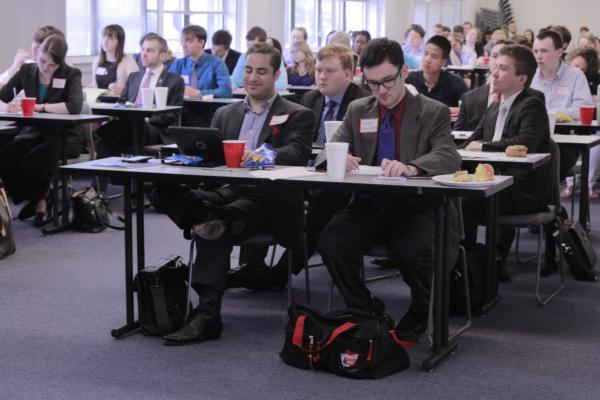
Jami Averwater
September 6, 2016
Digital Communications Workshop Fills F.M. Kirby Training Center
Eight seconds. That's all. Either my email grabs the reader's attention, or I've lost them.Without a doubt, one of the best perks of being a Leadership Institute intern is the convenience of high-demand classes like “Digital Communications Workshop: Email Marketing.” In one full day, I learned from presentations filled with information on email communication by top strategists in the field.When done properly, email marketing has the potential to have forty times more return on investment than that of the major social media outlets, one speaker told us. If that announcement alone wasn't enough to convince me to pay close attention to the lectures which followed, the biographies of the speakers would do the job. Aidan Quinlan-Walsh, a Client Strategist for Engage, spoke on the topic of email acquisition. He taught us how toevaluate an offer to rent or purchase an email list;practice for acquisition campaigns; andmeasure the effectiveness of gathered analytics.His main goal of the presentation? Ultimately, he showed us how to take advantage of the platforms available to us in order to reach people successfully.Carolyn Kincaid, a copywriter, taught us how to cultivate subscribers using effective content. To do this, she recommends ditching the traditional “newsletter style” email blasts and capitalizing on the excitement of the person on the receiving end of the email.My fellow workshop attendees packing the classroom included non-profit employees from Washington, D.C. and the surrounding areas, college students from multiple regions of the U.S., and many Leadership Institute staff. As always, the list of lecturers at this workshop impressed me. Together, the speakers brought perspective, energy, and a combined experience of over six decades. I left the workshop that day feeling like I could tackle the world of digital communications, and I found myself using many of the tools I learned during the weeks of my summer internship. Jami Averwater was a summer intern in the External Affairs Department for the Leadership Institute. Find more digital workshops you can attend by visiting the Leadership Institute's Digital training page. The Leadership Institute offers over 47 types of training programs, working with more than 1,619 conservative student groups, and helping employers connect with conservative job seekers. Since the Institute's 1979 founding, LI has trained more than 175,000 conservative activists, students, and leaders. Graduates include members of Congress, state legislators, local officials, media personalities, and conservative organization leaders. For more information, please visit www.LeadershipInstitute.org. >
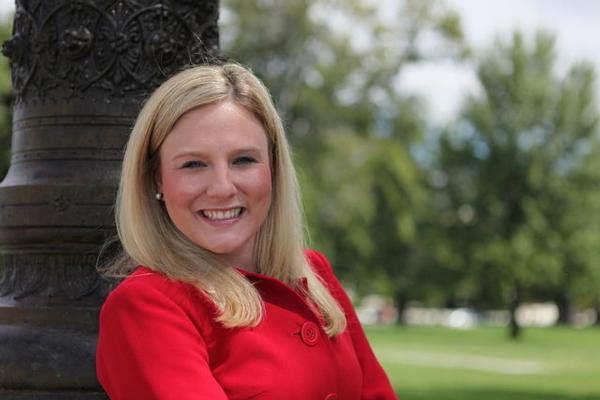
Jami Averwater
August 24, 2016
Recent graduate uses Leadership Institute skills to launch campaign in Washington, DC
It is safe to say Ashley Carter stays busy as the Grassroots Director for the Independent Women's Forum. This role leads her around the country speaking on many vital topics, including the importance of women running for public office. In fact, the organization has recently expanded to 10 states where they advocate heavily for issues of importance to women and families. Ashley covered these topics on a panel at the 2016 Republican National Convention. Now, Ashley Carter has announced her candidacy for DC Board of Education member At-Large.To recruit volunteers for her campaign, Ashley shared with me she had success using Leadership Institute's free job placement service, ConservativeJobs.com. "I have found LI to be a wonderful resource," she said. "And I continue to flourish in my career and now my campaign because of the Institute." In preparation for her campaign, she participated in both Leadership Institute's Campaign Management School and Future Candidate School. In the picture below, Ashley stands in the front row with a group of fellow Leadership Institute graduates at the Campaign Management School."Being immersed in a deep learning about campaigns with other candidates and leaders who share my beliefs helped to turn an idea about becoming a candidate into reality." Before beginning her role with Independent Women's Forum, Ashley attended the Women's Leadership Workshop and Women's Communications Workshop at the Leadership Institute in 2014. Ashley says that participating in these trainings helped her to find a network of conservative women who have continued to support her endeavor to be elected to the Board of Education in Washington, D.C. When asked what advice she would give to young people in the conservative movement, Ashley responded, "I believe all young conservatives should keep their minds open when facing new experiences. . . as a young conservative, you are an ambassador to the movement... Be proud to be a conservative!"Jami Averwater is a summer intern in the External Affairs Department for the Leadership Institute. Follow her on Twitter (@Jamikristin). The Leadership Institute offers over 47 types of training programs, working with more than 1,619 conservative student groups, and helping employers connect with conservative job seekers. Since the Institute's 1979 founding, LI has trained more than 175,000 conservative activists, students, and leaders. Graduates include members of Congress, state legislators, local officials, media personalities, and conservative organization leaders. For more information, please visit www.LeadershipInstitute.org. >
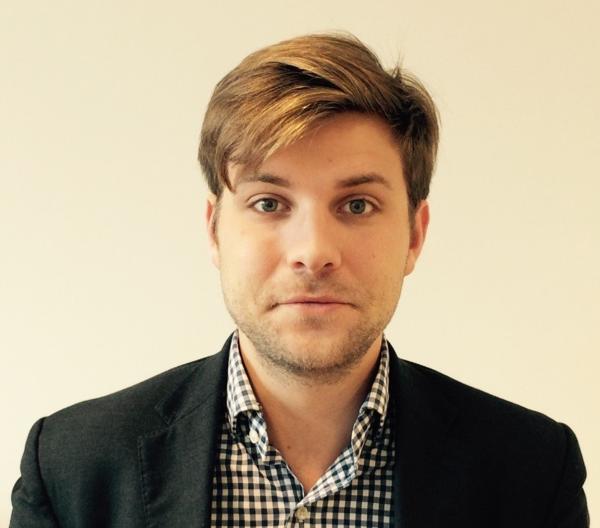
Mari Vogel
August 5, 2016
Former intern promotes conservative values in his home country of Denmark
Former Leadership Institute intern Ulrik Boesen is working to promote conservative values in his home country of Denmark. Ulrik, 26, has been involved in politics for more than ten years. As a teenager in Denmark, he got involved with the Danish Liberal Youth, doing grassroots campaigning and educating other party members on conservative philosophy. In 2012, he took an interest in the United States presidential election and worked with the Danish Liberal Youth (DLY) to volunteer for Mitt Romney's 2012 presidential campaign. “The passion and values of the people I met back then made me believe in the movement," he said. In the spring of 2013, Ulrik interned at the Leadership Institute, an opportunity which he credits with teaching him the dedication, execution, and public relations skills which he uses in the workplace today. “I must say that my time at LI was one of the best of my life, and not only because I met the love of my life." (Boesen met his long-term girlfriend during his time in the Washington, D.C. area.) Since returning to Denmark, Ulrik has worked at Japan Tobacco International, one of the world's largest tobacco companies, as the Corporate Affairs and Communications Manager. He enjoys the challenge of working in public relations and government with a product that is highly regulated. Ulrik hopes to continue supporting the international movement for personal freedoms and property rights, particularly in Denmark. He has been a member of the Danish political party, Venstre, for the last decade and has supported candidates in policy, development, and communications.As for advice he would give to other conservatives, he says, “I believe in the conservative values and the security you get from living by them." He also recommends getting involved in youth politics and campaigns at the earliest opportunity. “You must be willing to put yourself on the line. If you are willing to put your time and passion towards something, you will see great results."Learn more about LI's International Training. Learn more about the Institute's internship program and apply here. Mari Vogel is a summer intern in the Grassroots Department for the Leadership Institute. For more information, please visit www.LeadershipInstitute.org.>
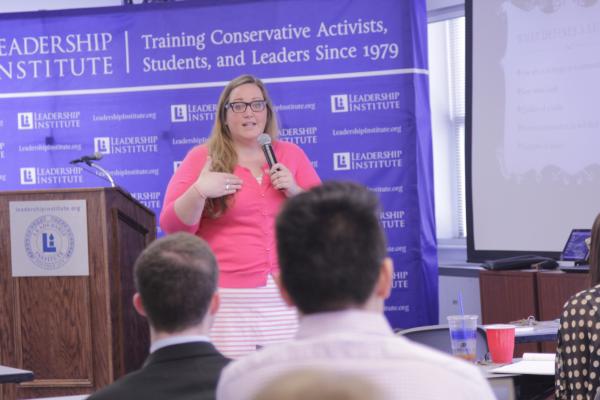
Patricia Simpson
July 26, 2016
Leading Without Authority
Most of us don't run an organization or company, we aren't calling the shots, and we certainly aren't signing the checks. But that doesn't mean we can't be leaders in our current positions. Here are some helpful tips to put you in a position to influence your peers, and even your supervisors.1. See yourself as a leader. If you don't have confidence in yourself or your abilities, you can't assume anyone else will. Whatever task you are assigned, become an expert in it. Confidence often comes when you feel knowledgeable, and when you're confident you command respect.2. Having a network means you're connected. A good manager appreciates when their subordinates have contacts that can help a project be successful. If you know someone at another organization or company who would provide a positive impact on the project you're working on, speak up and let your supervisor know. There's a good chance they'll listen.3. Don't present problems. Present solutions. If you find yourself hitting roadblocks when working on a project, figure out the best way to work around it. When you let your supervisor know about the problem, you should already have a solution. It shows responsibility, creativity, and innovation – and puts your ideas and actions in the driver's seat.4. Act like you've been there before. There is always going to be a scenario in which you've never found yourself before. If you take charge and tackle the problem head on without hesitation, individuals are much more likely to listen to you because you are the automatic “expert.”5. It's a game of pushing and pulling. Figure out how other people communicate. Some are influenced by being pulled into a situation through leading and involving while others are pushed through inquiring and proposing. Once you identify how an individual is influenced, you can adapt your approach to any individual to make them more likely to listen and follow you. Use these five tips to drive results wherever it is you're currently working. Peers will follow your lead and supervisors will notice the example you're setting for others. If you're driven and learn to read others, you don't need a title to be a true leader.Patricia Simpson is the Director of Career Programs at the Leadership Institute. In addition to overseeing the Division's trainings, like the Conservative Career Workshop, she manages all aspects of ConservativeJobs.com -- the Institute's free job placement service. >

Jami Averwater
July 19, 2016
Leadership Institute graduate uses training to play active role in the Republican National Convention
Joy Lee is a graduate of the Leadership Institute. She served as an attorney at the Committee on Arrangements for the 2016 Republican National Convention. Joy was born in Seoul, South Korea, and raised in Los Angeles, CA and Baltimore County, MD. Joy is a proud graduate of University of Maryland and Washington and Lee University School of Law.Read her interview about her experiences at the Leadership Institute and the Republican National Convention. 1. How did being a Leadership Institute (LI) graduate prepare you to work for the Legal Division at the Committee on Arrangements for the 2016 Republican National Convention (“COA”)? I attended the Leadership Institute's Women's Leadership Training in March 2014 in Arlington, Virginia with dozens of other women from around the country. Though this training did not prepare me for the legal and substantive parts of my role today, it provided me with a general framework as I started my career. Politics and the field of law are often considered to be male-dominated fields, so it's especially important for young women to learn how to present themselves as leaders wherever their careers take them.I was fortunate to be surrounded by and learn from some of the best legal, political, and logistics operatives in our party—many of whom are women. 2. How many months in advance does the COA begin to plan the Convention? I moved to Cleveland from Washington, DC for this position in late February/early March 2016, just under five months before the start of the Convention. At that point, the COA was already staffed to approximately fifty people, most of whom moved to Cleveland from various parts of the country.The first staff member of the COA was hired more than a year in advance of the Convention. At its peak, the COA had approximately 120 staffers, dozens of independent contractors and interns, and hundreds of volunteers. 3. Why was Cleveland chosen as the location for the 2016 Republican National Convention for the third time in history? The last time the Republican National Convention came to Cleveland was June 1936. Since then, the city of Cleveland has had its share of losses—economical and sports-related—but in recent years, Cleveland has experienced a resurgence. To showcase that on a national and even international level, the city of Cleveland submitted a bid to host not only the Republican National Convention but also the Democratic National Convention for three cycles in a row. When I asked a member of the Site Selection Committee why they chose Cleveland, he answered, “We felt special there.” Now that I've been in Cleveland for a few months, I can relate to that sentiment. The city of Cleveland has welcomed us with open arms, and it's evident how much this Convention means to the people of Cleveland. Especially in light of its recent NBA Championship—its first sports championship since 1964 and effectively earning its reputation as being a cursed sports city until now—there is a distinct buzz around town. It's exciting to be a part of history, not just for the party, but also for the city of Cleveland. >
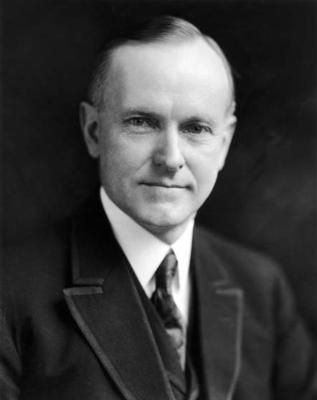
Mitch Nozka
July 4, 2016
Happy Independence Day
They called him “Silent Cal.” Calvin Coolidge, America's 30th president, was known as a man of few words in his private life. But on the presidential stage, when he had to lead our country, Coolidge spoke with conviction to the American people. “Collecting more taxes than is absolutely necessary is legalized robbery,” Coolidge said. Appropriately for a man of principle, Coolidge was born on the 4th of July. As you and I enter into this Independence Day weekend, please enjoy this wisdom spoken by Coolidge on the 150th anniversary of our nation: “We are obliged to conclude that the Declaration of Independence represented the movement of a people. It was not, of course, a movement from the top. Revolutions do not come from that direction. It was not because it was proposed to establish a new nation, but because it was proposed to establish a nation on new principles, that July 4, 1776, has come to be regarded as one of the greatest days in history. The American Revolution represented the informed and mature convictions of a great mass of independent, liberty-loving, God-fearing people who knew their rights, and possessed the courage to dare to maintain them.” In a day where the left spits upon our patriotism, as long as I have breath, I will dare to maintain constitutional, liberty-loving, God-fearing convictions. And you are patriotic and courageous. Thank you for standing with the Leadership Institute to train grassroots conservatives to restore and protect America's founding principles against those who work to destroy them.>
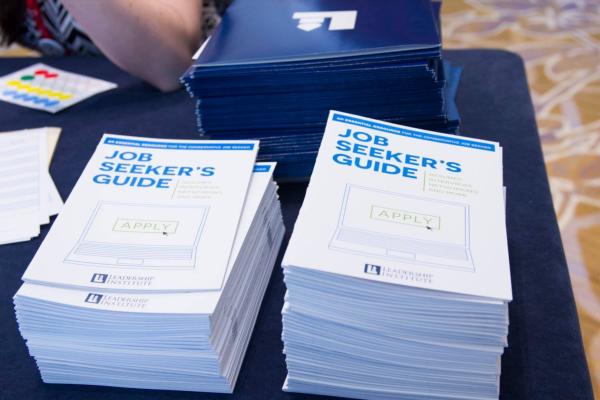
Patricia Simpson
June 1, 2016
Making Part Time Jobs Work for You
If you're like me, you have what my father jokingly refers to as, “champagne taste on a beer budget.” When I got to DC, my paltry entry-level staffer salary was not enough to sustain my lifestyle (which included “glamorous” things like paying rent and eating Lean Cuisines), so I did what any self-respecting 20-something had to do in that situation - I asked my parents for money! When they said no I did the next best thing – I got myself a part time job.Part time jobs in DC usually fit into one of three main categories – they pay well, they help your career along, or they're something that keeps you sane. Here are some tips on places to look for those jobs and the advantages of each one.They pay well – If you want a part time job that pays well, you're likely going to have to possess a highly technical skill or be willing to do some heavy lifting. There are plenty of folks who know how to do something, and most-likely do it well, but don't want to do it as a career. The benefit here is you can spend less time supplementing your income.Graphic DesignHTML codingMoving CompaniesThey help your career – Are you biding time at a non-profit and trying to figure out how to break into a Hill job? Go get a job as a bartender or wait staff at Cap Lounge or Bullfeathers. Do you want to get a job in the conservative or liberty movement? Go snag a job at O'Sullivans in Clarendon and request to work Tuesday nights. It is 100% possible to expand your network while getting paid and I highly recommend doing it. I know several people who got hired to a new position simply because they made a smart connection while working at a bar or being paid $20 to pass out stuffed mushrooms at a private fundraiser.Bars/restaurants frequented by industry employeesOrganizations and businesses needing extra help after hoursEvent staff for fundraisersPolitical call centersThey keep you sane – Sometimes making extra money should just be fun. I've worked at a store just to get an employee discount on merchandise and I've worked at a frozen custard shop because I wanted to meet nice people in a cool neighborhood. I have a friend who umpires Little League games. Stress-relieving jobs are like therapy sessions that pay you at the end.Your favorite retail store (DISCOUNTS!)Babysitting or dog-sittingUmpire/refereeAs fiscal conservatives we need to make sure we're practicing what we preach. The bottom line is if you need the extra cash, you can find a part time job that will benefit you. And if you don't need the money, sometimes a part time job can be a way to blow off steam, a way to meet new people, or your first step toward a new career.>
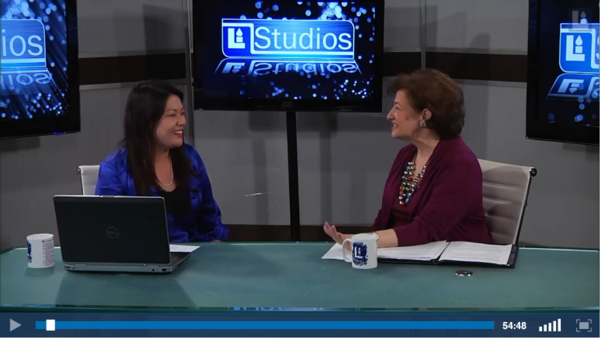
Elizabeth McCullough
April 25, 2016
What I learned at the TV Workshop
I confess that I wasn't too sure what I was getting myself into when I found myself in the front row of the Leadership Institute's monthly On-Camera TV training.All I knew was that if I'd known I would be on camera, I would have worn more makeup. Trying not to panic over my impending doom, I learned more about a few of my fellow students.As a busy mom, Christine Olson didn't have time to spend a day in the Studio. But then again, with an important TV interview looming, she knew couldn't afford not come. Despite having no hesitation speaking to large groups, her brain always froze in front of a camera.Even though it was Spring Break, Tristan Justice stayed in town for one of the limited seats in the highly sought after on-camera TV Training. As a college freshman, Tristan dedicates his time to conservatism activism and wants to be prepared as possible.That morning, at 8:50 am, conservative lawyer Aaron checked his email and saw there was an opening in the previously full TV training. “I had 20 minutes to rent a car.” He immediately drove 4 hours from New York City to the Sacher Multimedia Center in Arlington, VA and walked in right on time.You could feel the nervous energy in the air as guest faculty Beverly Hallberg smiled cheerfully behind the desk, almost as if the dreaded camera and microphone were her friends.Beverly has been on all sides of the camera. Producer, director, and host are just a few of the shoes she's filled. Before starting her own business, Beverly was also the Director of the Sacher Multimedia Center. Now she returns to teach uneasy yet eager students how to distil their message for TV.Under Beverly's encouraging instruction and honest feedback, I found myself thawing and even excited about my next turn in front of the camera.Everything she said mattered -- no filler information.Together we learned to ‘block' and ‘bridge' our message. As we fought through our camera fears, comradery and friendship replaced the jitters. The whole class cheered the next one to go ‘live.'By the end of the day, Christine was not only smiling at the camera but also at the top of the class.Aaron didn't dread the drive back to New York, “I knew it would be worth it -- and I wasn't disappointed.”My only regret was that it was over. And that I hadn't worn more makeup.Good thing the Leadership Institute hosts On-Camera TV Training every month -- I'll be in the front row again soon.>

Paul Van Remortel
April 19, 2016
Online Advocacy and Activism as a Tool for Action
In the digital era, videos that are really popular "go viral." This is true of online petitions as well - they spread quickly across social networks and a viral petition takes on a life of its own.For activists, this is a Godsend. Petitions have historically relied on word of mouth and community bonds to gain traction (and signatures). Today, it's easier than ever to rally thousands of individuals who share a given point of view and will show their support through signatures and sharing alike, substantially multiplying the impact.Unfortunately, the Left has dominated the medium through sites like Change.org, which has gathered more than 100 million users in support of primarily liberal causes. That success has fueled a myth that the tactic of online petitioning is one that only “progressives” can or want to use. But conservatives are increasingly realizing the benefits — and necessity — of incorporating online tools into modern activism efforts.Fortunately, anyone can become an effective advocate for any of the issues they care about with just a few simple steps.First, identify a cause you are passionate about — it doesn't have to be a national issue like Common Core or the Second Amendment. Sometimes the most powerful, effective petitions address local issues that others in your community care about as well.At StandUnited, an online platform we created to level the playing field for supporters of individual liberty, free enterprise, and limited government, individuals have created petitions that have had diverse impacts, from successfully requesting that Congress repeal the Medical Device Tax, to saving a historic Confederate War memorial in Portsmouth, Va.The next step is to identify the decision makers that will be able to effectively address the issue at hand. This could mean your local city council or the president of the United States — the beauty of digital activism is that anyone is easily accessible with your message.After identifying the decision makers for your issue, create and share a thoughtful, articulate petition with friends, family, neighbors and like-minded individuals. Nothing has made activism easier and more effective than social media, which is why it's so crucial that you share your petition on your social media profile to make sure as many people as possible see it. You might even be surprised by who agrees with you.Make sure that your local media is aware of your petition, and update them on the progress of the petition and the importance of your cause. This can be the most daunting part of the process, especially if you are not familiar with media outreach. Fortunately, most local media are interested in the issues that impact their city or state, and media coverage of your petition is one of the most effective ways to get the attention of decision makers.A great opportunity to get media coverage is to deliver your petition in person to the decision maker. If there is a deadline such as a vote, a hearing, or an election, use this opportunity to press the decision maker on your issue and get publicity.Finally, don't give up on your issue. Activism isn't a process that works immediately — sometimes it takes weeks or months for a petition to gain steam. Keep working to spread awareness of your petition and the issues at hand, and you're likely to see your hard work pay off.Thanks to the rise of digital activism, that sentiment is truer than it's ever been. Never have individual voices had a louder megaphone, higher platform or more direct access to decision makers, and as a result the power of the petition is greater than it's ever been. You have the power to make your voice heard.This piece was adapted from a recent Column on Townhall.com.Paul Van Remortel is the senior product manager at Intermarkets, Inc., a privately held digital media firm founded in 1997. Paul will be leading the “Online Advocacy and Activism as a Tool for Action” webinar hosted by the Leadership Institute on April 27. For a free registration visit https://www.leadershipinstitute.org/live/?ID=31958>
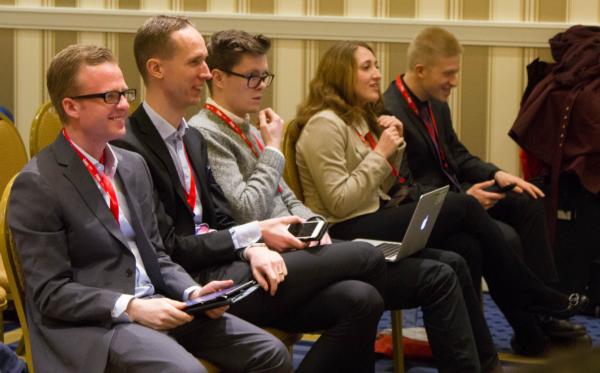
Natalie Tuttle
April 4, 2016
What You Missed at CPAC 2016
Each year, the Conservative Political Action Conference is a gathering of conservative leaders looking to network, advance conservativism, and learn from some of the greatest minds in the movement.This year, speakers like Dr. Ben Carson and Carly Fiorina rallied conservatives together. Above the stage read “Our time is NOW,” taken from Ronald Reagan's CPAC speech in 1981.At the conference, Leadership Institute sponsored, staffed, and organized of 5 conference events, including the job fair and boot camp training sessions.1. Activist Boot CampOn day one, the Leadership Institute partnered with the American Conservative Union and with American Majority to train 383 conservatives. Attendees were trained in student activism, community activism, and campaign technology.The Leadership Institute's Steve Sutton, David Blair, and Summer Ratcliff were among the boot camp faculty. Speakers from American Majority, Americans for Prosperity, FIRE, the Blaze, and the Franklin Center also trained activists and conservative leaders.2. ConservativeJobs.com - Career ConsultationsAfter the official CPAC kickoff on Thursday, Leadership Institute's Conservative Jobs organized recruiters from LI and other conservative organizations to critique CPAC attendee's resumes and offer one-on-one career consultations. Recruiters from LI, Cato, The Heritage Foundation, the Charles Koch Institute, and Americans for Prosperity sat down with 133 conservatives.3. CPAC Jobs and Internship FairOnce again this year, the Leadership Institute organized the CPAC Job and Internship Fair. Over 250 job seekers connected with 40 conservative employers.Organizations who recruited at the fair included grassroots organizations, media groups, think tanks, and policy foundations. Groups like Turning Point USA and Americans for Prosperity recruited field representatives while organizations like Townhall Media, Red Alert Politics, and Campus Reform looked for writers to hire.4. Campus ReformIn the exhibit hall, referred to by conference attendees as “the Hub,” Leadership's Institute's Campus Reform held an on-camera contest for students. Entrants were asked questions about issues on “live” camera by LI staff and competed for cash prizes.More than 100 students participated in the competition over the course of three days. All participants are eligible to be selected as Campus Correspondents, which will increase the number of conservative students exposing liberal bias on college campuses around the country.5. Young Activists Happy HourDuring CPAC, young activists from around the country network with each other. Swapping stories, discussing recruitment strategies, and just socializing with like-minded individuals are just a few highlights of the CPAC experience.To encourage networking among young conservative leaders, the Leadership Institute and seven other organizations hosted a Young Activist Happy Hour. Almost 400 attendees packed the bar and formed a line to the end of the block to spend the evening networking. Recruiters and staff of organizations like Young Americans for Liberty, Future Female Leaders, and the Charles Koch Institute mingled with activists.At the Happy Hour, the Leadership Institute welcomed many new activists to the Campus Leadership Program network. Almost aEvery year, CPAC is a new experience. Conservatives from all over the country (and from around the world) come together for a week of idea sharing, activist training, and coalition building. This year was no exception. With hundreds of new conservatives plugged in, trained, and employed conservative principles have a stronger voice going into election season.The Leadership Institute offers over 47 types of training programs, working with more than 1,759 conservative student groups, and helping employers connect with conservative jobseekers. Since the Institute's 1979 founding, LI has trained more than 172,000 conservative activists, students, and leaders. Graduates include members of Congress, state legislators, local officials, media personalities, and conservative organization leaders. For more information, please visit: www.LeadershipInstitute.org. >
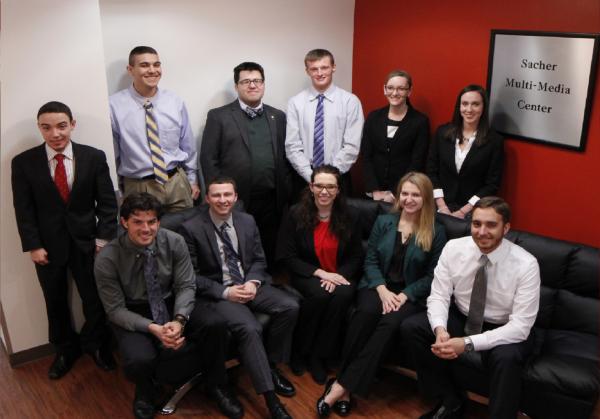
Derek Faraldo
March 31, 2016
The Conservative Internship Search: Capitol Hill vs. Non-profits
As a recent graduate of Georgetown University, I was blessed to have four years in the city of limitless internships, Washington D.C. However, not all students are lucky enough to attend college in the nation's capital. Fortunately, many universities have semester-long exchange programs, externships, or summer opportunities. During my undergraduate years, I participated in two non-profit internships and three congressional internships. If you do not have a few years to shop around for an internship then my experiences may help you narrow your search.Capitol HillI believe that in order to fully appreciate your time in Washington D.C. every intern should spend at least 12 weeks interning for a congressional or senate office.A congressional or senate internship can be a great resume booster, teach you some professional skills, and help you network on the Hill. Most interns are given simple office tasks to complete. While the work usually isn't anything inspiring, the experience of living in D.C. makes up for the sometimes boring days in a government office.For most prospective interns, there are some practical limitations. For example, in the year and a half I spent working for three different offices I did not get paid.If I had not had school housing, I would have been out of luck. There are some programs to help students pay for the cost of living in D.C, but it is an expensive city for a student on a budget.Non-profitsNon-profit internships are great starting points for careers in public policy, digital media, journalism, and many other fields. Each non-profit is different in office culture and atmosphere, but they generally operate in similar manners.For students or recent graduates who require monetary compensation and would like an internship with a job title and specific duties, the non-profit world is often a better option. In the conservative non-profit world, there are many paid internships that provide unique benefits.Often, these organizations hire from their own intern pool, so there is added incentive to make connections and maximize your efforts. The office environments vary, but at least you don't have to go through security every day!Most non-profits allow and encourage interns to work on projects that have value and many organizations treat interns like a staff member.A potential intern should really consider the kind of experience they want and set goals, always keeping in mind their practical limitations.Reflecting on my experiences, I would encourage students or graduates who lean conservative to seriously consider non-profit internships. Don't' worry, even while working at a non-profit, if you really want to see the Capitol building, you can visit your congressmen's office on your lunch break! One of his or her interns will give you a tour.Derek Faraldo is the current Grassroots and International Programs intern at the Leadership Institute. He recently graduated from Georgetown and will be working with Teach for America in the fall. Learn more about the LI Intern Program here.>
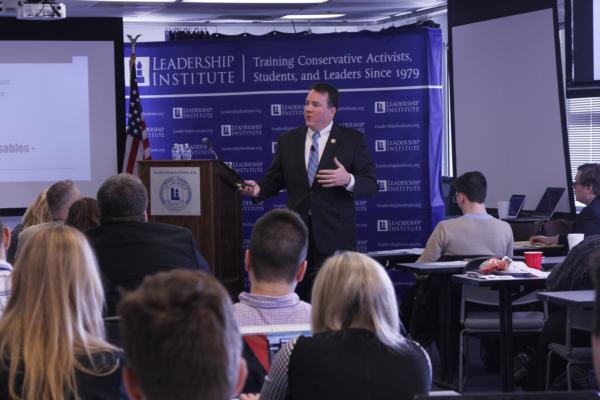
Natalie Tuttle
March 6, 2016
Future Candidate School: Training Conservatives to Win
If you knew the formula for winning, would you run for office?In January, thirty-four individuals attended the Leadership Institute's Future Candidate School. Some of them were declared candidates in their state or local races. Others were planning congressional runs and the remaining few had just begun to contemplate a run in the future.If you haven't considered running for office, you should. Running doesn't require thirty years of political experience or a few million dollar donors willing to sponsor you. With the right tools and training, anyone can learn to win at LI's Future Candidate School (FCS).For four days, attendees focus on building a base, raising funds, identifying voters, and recruiting volunteers. The faculty roster included political consultants, media coordinators, fundraising gurus, and even a current U.S. Congressman.The intensive training also focused on personal and political preparation for a career in elected office.Day 1: Are you ready to run?Because running for office means more than showing up to events with a smile and a wave, FCS started out with a session examining your ability to enter a race. George Landrith, president of Frontiers for Freedom, helped students examine their past and present, looking for signs of trouble. In the second session of the day, attendees learned that running for a higher office can be a full-time job with plenty of overtime and candidates have to be sure their finances are stable at home.To help candidates decide if running is right for them, Congressman Alex Mooney answered questions candidly about the role and responsibility of the candidate.The rest of the day focused on preparing your network and recruiting volunteers to your cause as well as making sure you have a positive media presence on the day you announce your candidacy.Day 2: So you decide to run. Now what?So now that our candidates have decided to run, they should develop a persuasive message. Leadership Institute Vice President of Development Steve Sutton worked through recent election messaging to demonstrate the impact proper use of messaging can have on a campaign. Nancy Bocskor reiterated the importance of messaging during her presentation on storytelling, emphasizing communicating effectively.In addition to crafting your message and sharing it with your voters, you also should reach out to existing groups and coalitions in your constituency. These coalitions may be able to provide volunteers and maybe even connect you with good candidates for campaign staff. Quality campaign staff do vital work to ensure your campaign is functioning efficiently and legally.Day 3: Getting in isn't even the hard part.Winning the race is the goal of every campaign, but what about staying in the race? You can't win the race if you can't pay your bills. Make sure you have the budget to remain a viable candidate.Competitive candidates have had to suspend their campaigns because they lacked the funds to keep the lights on. Don't be one of those candidates. Future Candidate School teaches candidates that their number one responsibility is fundraising. Staff and volunteers can get your name on the ballot and they can rally the voters, but only the candidate can raise money from donors. Day 4: Acting the part.On the final day of Future Candidate School, Dr. John Shosky, president of Roncalli Communications, Inc, spent the entire day with attendees, coaching each student through communication and messaging techniques. Beginning with introductions and ending with elevator speeches, students were led through a series of exercises to increase their confidence and improve their interpersonal skills. To be successful, candidates have to be versatile. Different situations call for different communication styles. Students were given tips on everything from posture to intonation. After drafting rough speeches, Dr. Shosky gave each student short critiques and advice to take away from the training. These guidelines are meant to improve the impression that a candidate will make in the first three seconds of meeting a potential volunteer, voter, or donor. Those thirty-four individuals walked away from the Leadership Institute's Future Candidate School with the formula to win. Will they run? Time will tell.To learn more about the Leadership Insititute or to sign up for a training go to LeadershipInstitute.org. >
.jpg)
Natalie Tuttle
January 29, 2016
Youth Leadership School Director Named 2015 Employee of the Year
Each year, the Leadership Institute recognizes one staff member for achievements that surpass all expectations. At the winter quaterly meeting, founder and president Morton Blackwell announced that the 2015 Employee of the Year is Youth Leadership School Director Daryl Ann Dunigan.In 2015, the Leadership Institute hosted 41 Youth Leadership Schools attended by 1,072 students from around the country and around the world."These impressive numbers set two new records for most students trained and the most of their particular school held in a single year,” Morton announced after the applause. The Youth Leadership School and Campus Leadership Program departments spent an average of three weekends a month training activists and student leaders, sometimes hosting two or three Youth Leadership Schools a weekend across the nation. Without dedicated leadership, this would not have been feasible. Daryl Ann and her team had an excellent year of recruiting and training.“These results would not have been possible without tireless work ethic and great leadership,” Morton said before giving Daryl Ann her award and a vase of flowers. Congratulations Daryl Ann!Daryl Ann Dunigan is currently the Youth Leadership School Director at the Leadership Institute, where she is responsible for identifying, recruiting, and training students across the nation.Prior to working for the Leadership Institute, Daryl Ann worked as Campaign Manager for Jeff Thompson's successful State Representative campaign in Louisiana. She was the Youth Coordinator for Congressman Andy Harris's campaign in 2010. She also was a summer intern with the Youth Leadership School department and John William Pope Civitas Institute.Daryl Ann graduated from the University of North Carolina at Chapel Hill with a B.A. in Political Science and Communication Studies. >